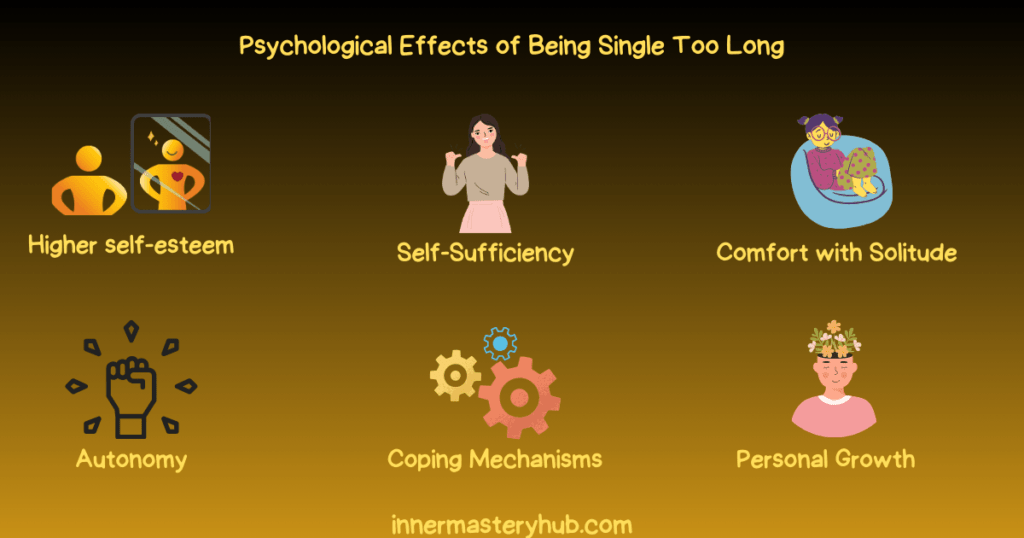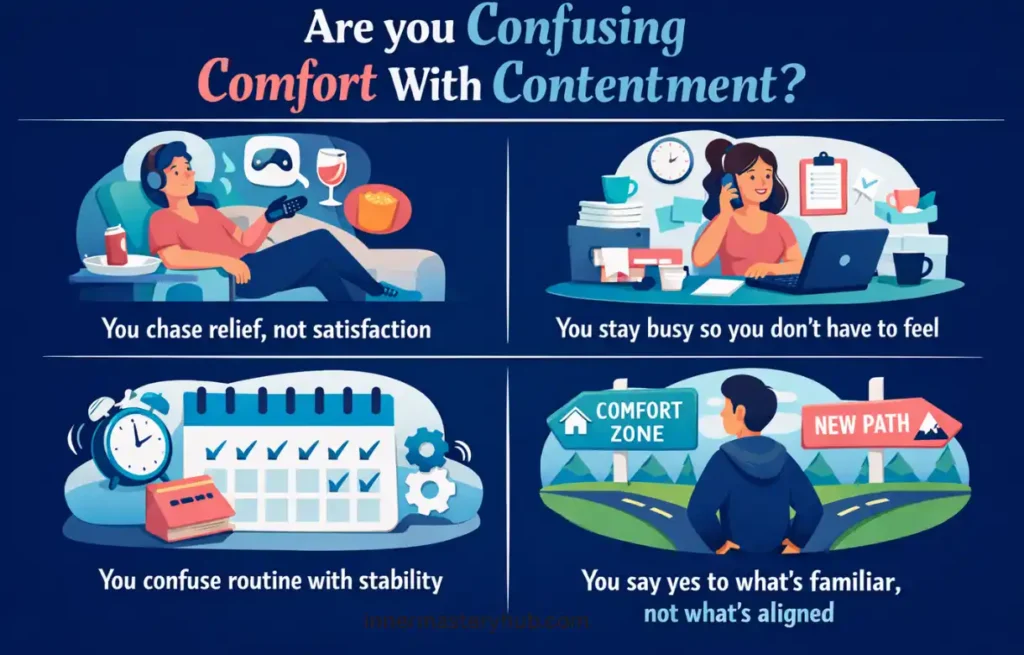Being Single for a Long Time? 11 Ways It’s Actually Helping You Evolve

Being single for a long time can feel like both a blessing and a challenge. For some, it’s a period of self-discovery, independence, and growth; for others, it might bring moments of loneliness or societal pressure. But the truth is, being single for a long time doesn’t define your worth or your ability to love — it simply offers a unique opportunity to understand yourself more deeply and build a fulfilling life on your own terms.
What Does It Mean When Someone Is Single for a Long Time?
Being single for a long time might mean different things to different people. They may be focusing on their professional development, working on personal growth, moving on from previous relationships, or simply taking advantage of the independence and flexibility that come with being single.
Being single for a long time allows for self-reflection, self-discovery, and the growth of a strong sense of self. It helps people to define their needs, wants, and non-negotiables clearly, providing a solid basis for future relationships.
Prolonged singledom, however, can also be brought on by feelings of inadequacy, emotional trauma, or fear of commitment. But protracted singledom can mean different things to different people, and their own experiences and viewpoints influence that meaning.
Prolonged singleness is only sometimes a conscious choice.
You know, being single isn’t necessarily a deliberate decision. Being alone for a long period can be caused by a variety of life circumstances, such as not finding compatible companions, having demanding jobs, or coping with personal health concerns.
Furthermore, the baggage from previous relationships might sometimes make it difficult to start over. In these circumstances, it’s normal to feel alone, insufficient, or frustrated. But here’s the thing: Every path is different, and being single can present chances for personal development, autonomy, and fulfilment.
11 real reasons why being single for a long time helps you evolve
1. You Learn Who You Really Are
When you’re always with someone, your likes, dislikes, and habits often mix with theirs.
However, being single for a long time provides you with the quiet space to get to know yourself.
You discover what truly makes you happy — not what’s expected to make you happy.
2. You Build Real Independence
From fixing minor problems to managing your life decisions, being single teaches you how capable you really are. You stop waiting for someone to rescue you and realise, you’ve got this.
3. You Strengthen Your Emotional Stability
Relationships can sometimes distract us from our own emotions. When you’re single for a while, you face them head-on. You learn how to handle sadness, stress, and change, and that emotional maturity becomes your superpower.
4. You Stop Settling for Less
When you’ve been single long enough, you stop jumping into relationships to avoid loneliness.
You start valuing peace over drama, effort over excuses, and connection over convenience.
5. You Discover True Self-Love
Being single for a long time helps you understand that love doesn’t always come from someone else.
It starts with you — the way you treat, talk to, and care for yourself.
6. You Have Time to Chase Your Goals
Without the constant pull of a relationship, your time becomes yours again. You can focus on career goals, travel plans, hobbies, or building the lifestyle you dream of — all on your timeline.
7. You Build Healthier Boundaries
After being single for a while, you get clear about what you will and won’t accept.
You recognise red flags faster and protect your peace before anything else.
8. You Grow Stronger Friendships
Being single doesn’t mean being alone.
In fact, it often helps you reconnect deeply with friends, family, or even new social circles. You learn the value of genuine human connection — beyond romance.
9. You Learn to Enjoy Your Own Company
At first, silence can feel uncomfortable. But soon, you’ll find peace in it.
You’ll enjoy solo coffee dates, quiet walks, or watching a movie alone — without feeling lonely.
10. You Become More Self-Aware
Time alone allows you to reflect on past mistakes, emotional patterns, and areas for growth.
That awareness makes you wiser and more prepared for a healthy relationship when the right one comes along.
11. You Redefine What Love Means
After being single for a long time, you stop chasing “perfect.”
You start looking for “real” — real effort, honest communication, and fundamental understanding.
That’s not lowering your standards — it’s raising them in the right way.

Why Are People Who Have Been Single a Long Time the Hardest to Love?
Long-term unmarried people may be perceived as more challenging to love for various reasons.
First, their increased independence and self-worth may be frightening to their relationships. Because they have become self-sufficient, these individuals may be less inclined to relinquish their autonomy or make the kinds of sacrifices typically required in relationships.
Second, others may mistake their ease with solitude for coldness or indifference. They might not need as much social engagement as others because they have learned to find calm in their company.
Thirdly, they have developed preferences, habits, and routines that may be hard to break. Being able to live their lives as they see fit may make them hesitant to adapt to a partner’s lifestyle.
In conclusion, they have developed effective coping strategies that enable them to manage life’s challenges independently. Partners who wish to be heavily involved in providing for and caring for their loved ones may be discouraged by this resilience.
Because they have taken the time to learn about their needs and desires, they might also hold partnerships to higher standards. These elements may make people more difficult to love, but they may also serve as the cornerstone of a harmonious, healthy collaboration based on respect and understanding.
How to Address The Effects of Being Single for a Long Time
To address the repercussions of long-term singledom, it is essential to be aware of the unique advantages and challenges it presents.
First and foremost, one must acknowledge the importance of independence and self-reliance, which frequently accompany being single. These attributes can support a good relationship rather than acting as a barrier to love. Finding a balance between allowing someone in and preserving one’s individuality is key.
Second, being at ease in isolation does not imply being distant or uninterested in interpersonal connections. Understanding potential partners’ demands for intimacy and connection, as well as communicating your own privacy and personal space needs, is essential. This can help you prevent miscommunications and establish connections that respect personal boundaries.
Thirdly, it is possible to modify long-standing customs and behaviours. In relationships, flexibility is crucial, as is being adaptable and prepared to make concessions. Do not to lose yourself in the process, though.
Having strong coping strategies is a strength, not a weakness. To communicate to prospective partners that although you are capable of managing life’s obstacles on your own, you nevertheless value their assistance and care.
In conclusion, long-term singledom presents special benefits and problems. It’s about being open to the changes a partnership may bring while also enjoying its inherent virtues. It is a path of personal development and self-discovery that can lead to a satisfying collaboration.
Final Thoughts
Being single for a long time doesn’t mean you’re broken, unwanted, or left behind.
It means you’re evolving.
You’re learning, healing, and becoming someone who doesn’t just look for love — but someone ready to give it the right way when it arrives.
So if you’re in your single season right now, embrace it.
Because this isn’t a pause in your story — it’s one of the most important chapters.
FAQS About Being Single for a Long Time
Is it normal to be single for an extended period?
Yes, being unmarried for a long time is quite typical. People might have quite varying relationship timelines due to differences in their personal preferences, living situations, and cultural standards. Whether one is single or in a relationship, the focus should be on personal development and fulfilment.
Why would someone be single for an extended period?
People may remain unmarried for extended periods while pursuing their education, careers, or personal growth. On the other hand, it can be due to high standards when choosing a mate, fear of intimacy, or romantic trauma from the past. The reason is quite individualistic and differs from person to person.
Why can’t some people stay single for long?
Some people find it difficult to remain single because they require approval, are afraid of being alone, or want company. They may find their company uncomfortable or rely on a companion to make them feel happy and valuable. Societal expectations and demands may also influence this conduct.
Does being single affect mental health?
Both positive and negative effects on mental health might result from being single. It has the potential to boost self-esteem by fostering independence and promoting personal growth. Alternatively, it can exacerbate feelings of loneliness or anxiety if linked to unwelcome isolation or social pressure. The effect is quite particular and shaped by unique situations.
Can being single for too long affect one’s social skills?
Long-term singledom can affect a person’s social abilities. Extended periods of isolation may result in fewer opportunities for social engagement and communication, which could hinder the development and maintenance of these skills. However, this varies from person to person and is not a given.
Is It Possible to Overcome the Psychological Effects of Being Single for Too Long?
Indeed, it is possible to overcome the psychological effects of prolonged singleness. It involves self-awareness, communication, personal development, and seeking professional help such as counselling or therapy. A supportive social network and self-care practices also play a critical role in this journey towards emotional well-being.
Is being single for too long a red flag?
Being single for an extended period isn’t inherently a red flag. It can signify self-sufficiency and personal development. However, suppose long-term singleness stems from commitment issues or a reluctance to engage in intimacy. In that case, it may be a concern that warrants further discussion and understanding within the context of a relationship.
Is being single for a long time a bad thing?
Not at all. Being single for a long time can offer freedom, self-discovery and growth. It doesn’t mean there’s something wrong with you. It means you might be using this time to evolve, gain clarity, and become a stronger version of yourself.
Will being single for a long time make me bad at relationships later?
Not necessarily. While you might have less recent practice in a romantic partnership, the skills you’ve gained—independence, self-awareness, clear boundaries—can make you very ready when you do enter a relationship. Growth matters more than just the number of relationships.
How can I make the most of being single for a long time and turn it into a positive experience?
Focus on yourself—your goals, hobbies, health, friendships. Use this time to discover what you truly want in life and in relationships. Celebrate your freedom, set boundaries, and be open to new experiences. This period can be powerful if you treat it as a chapter of growth.
How do people view someone who’s been being single for a long time?
Views vary by person and culture. Some people might assume you’re picky or unlucky—but that doesn’t define you. It’s more useful to see your single season as a choice or evolution rather than a negative status. How you carry yourself can shift people’s perception.
Can I still find love after being single for a long time?
Absolutely. Love doesn’t have a strict timeline. Being single for a long time doesn’t block you from finding meaningful connection later. Often, when you’ve grown and know yourself better, you attract healthier relationships.
How do I explain to someone why I’ve been being single for a long time?
You might say you were focused on yourself, your goals, or waiting for the right fit. You don’t owe anyone a long explanation. Confidence and clarity speak volumes. Honest and straightforward.






